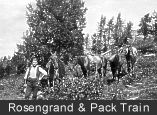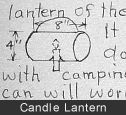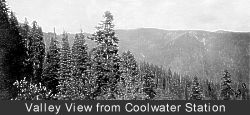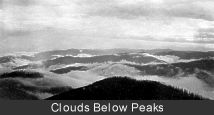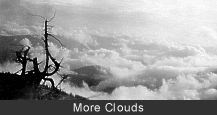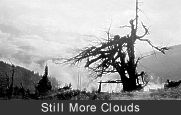| Chapter 9: Cookin'
Cooking is a necessity. Supplies consist of flour, corn meal, oat meal, bacon, soda, apricots, prunes, beans, butter and rice. Some tea, coffee and cocoa. Eat them raw if you like. Sourdough is made by mixing flour and water and putting them in the sun to become yeasty. It must not decay. More batter is mixed than required. Used thin, it makes pancake batter. Used thick it makes bread. Of course, soda is added just before using. To that which is left is added enough flour for the next day, and it is again set aside to work. It will foam up and sometimes run over the next morning. Bread may be readily made in a frying pan by first frying out grease from bacon. Then add a pad of dough 1/2" thick and fry a crust on each side, full frying pan diameter. When solid enough to stand on edge, place frying pan in front of the fire like a reflecting oven, turning the bread and flopping it as it bakes. To save washing a pan, mix the dough in the top of the flour sack. Every speck is precious when it is running out and flour is 50 miles' walk away. [Here are some recipes my mother sent west with me.] |
